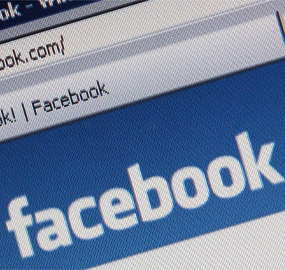Facebook launches new privacy features which echo Google+
Facebook has announced new ways for users to control the privacy of the content that they share using the world’s largest social network, as our Technology Correspondent Benjamin Cohen reports.

In a blog post today, Facebook’s Chris Cox said: “Today we’re announcing a bunch of improvements that make it easier to share posts, photos, tags and other content across Facebook with exactly the people you want. You have told us that ‘who can see this?’ could be clearer across the board, so we have made changes to make this more visual and straightforward.
“The main change is moving most of your controls from a settings page to being inline, right next to the posts, photos and tags they affect. Plus there are several other updates here that will make it easier to understand who can see your stuff (or your friends’) in any context. Here’s what’s coming up, organized around two areas: what shows up on your profile, and what happens when you share something new.”
Just three months ago, Facebook paid PR agency Burson-Marsteller to secretly convince a journalist to write an article claiming that Google would launch a product that would invade people’s privacy by taking content from people’s Facebook accounts and sharing information with a wider audience.
In fact, the product that Google launched, Google+, is considered by many, including me, to be the most privacy-aware social networking product on the market.
From the moment you join, you can put your friends, contacts, people you follow on Twitter, or your work colleagues into different groups called circles. And when you post any content onto Google+ you make the active decision on which you’re going to share it with – whether it’s family, my mum, three of my closest friends or just work colleagues.
Facebook, in effect, had similar functionality already. I have lists of my work colleagues, my really close friends and family. I choose to share my location when I check in with just my closest friends. And with some photos I go to the effort of making sure my work colleagues can’t see them.
But it’s a cumbersome process that the normal Facebook user wouldn’t come across, primarily because the settings are buried away from the main Facebook walls. Now Facebook will use “inline” privacy control links on every page, after posting any piece of content.
Another new feature gives users the ability to approve or reject attempts by other users to “tag” someone in their photos. At the moment, users only have a retrospective ability to do so. But now, users will also have the ability to tag people they are not friends with on Facebook. Others include the ability to change who can see a piece of content.
I’m not familiar with Google+. Facebook spokesperson
Facebook’s spokesperson admitted to me that there was a lot wrong with the previous versions of Facebook but when I asked her whether she’d accept that the changes seemed to mirror Google+, she told me: “I’m not familiar with Google+.”
It’s important to remember that in January last year, Zuckerberg said the age of privacy is over and he told me when I interviewed him in 2008, he said that the world would be a better place if we knew more about each other, but in reality users care about what they post and who sees it.
As Facebook gears up towards its IPO, which we expect early next year, it needs to make sure it can prove to investors that it has a sustainable business and that it won’t lose users and users’ interest.
Its growth has started to plateau in countries where it is most popular, which indicates that it may be limited to a certain type of person.
By responding to users’ concerns and putting greater control into the hands of users, Facebook will be able to redress that and prove to the market that it’s a sustainable business.
It is doing that in the context of there now being credible alternatives. While Google+ is still in a test phase, it already has 27 million users. And while that’s nothing compared to Facebook, it’s a challenge that Facebook didn’t expect to face after it killed off Bebo and MySpace.
-
Latest news
-
Are Labour and Tories in election mode? | The Political Fourcast35m

-
Boy with profound learning disabilities reaches out of court settlement after abuse in residential school7m

-
India election: Modi rivals hit by string of raids and arrests7m

-
Can UK’s abandoned mines be used to build a greener future?5m

-
Sycamore Gap: Man pleads not guilty to felling iconic tree2m

-




